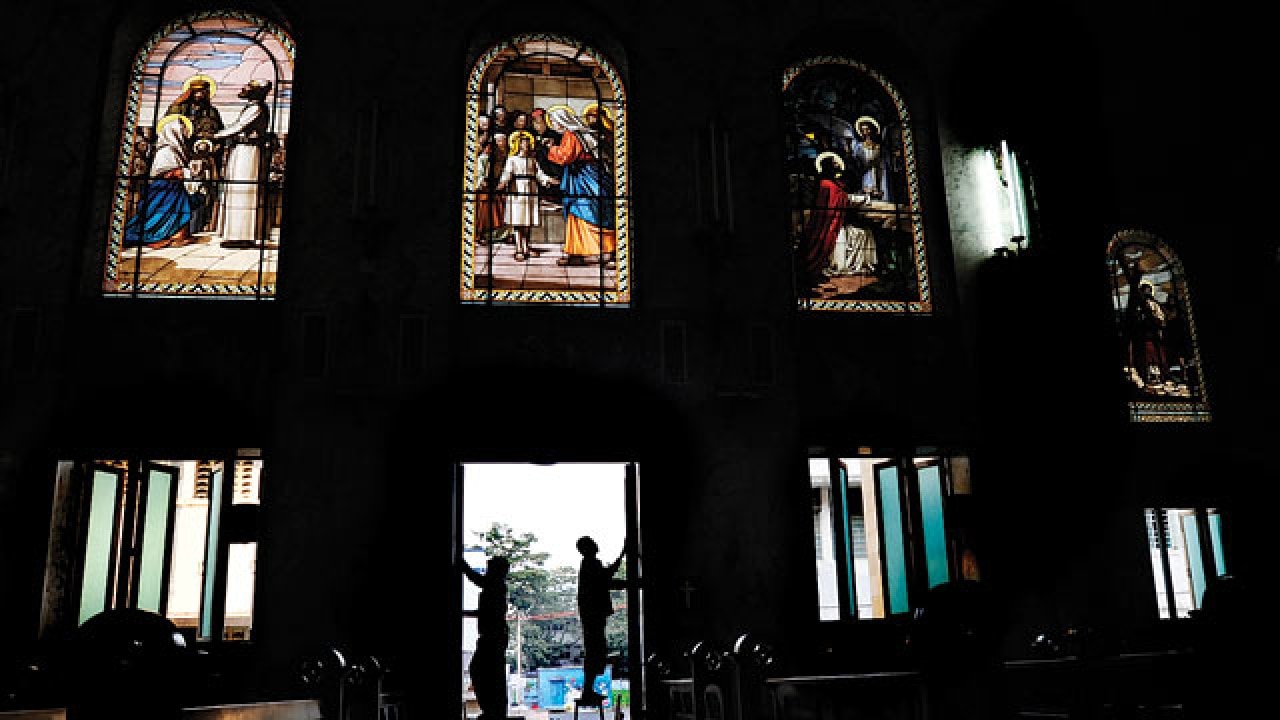
When Muslim and Christian invaders encountered people of non-Abrahamic dharmic dispositions in India they were, to say the least, sorely perplexed. Those who came as traders put up with their bafflements, but conquerors found their incomprehension a golden opportunity to sack, pillage, rob, loot, destroy – and of course, convert.
The root of the problem as Professor Arvind Sharma, one of the world’s leading scholars of religion, explains is not a clash of religions so much as clash between two notions of religion. In Abrahamic traditions, each faith community has its own unique idea of a single God to the exclusion of all other competing or compatible ideas. So, you can’t be a Christian and a Muslim at the same time even though both, supposedly, believe in the ‘same’ God. But if you think that the stumbling block is the idea of the ‘Son’, think again.
Neither the Jews nor the Muslims believe that God has one begotten son. It would seem, then, that Jews and Muslims should therefore have no trouble in believing in each other’s God. But does that happen in reality? No.
You can’t be a Jew and a Muslim at the same time. What about the various sects of Christianity? Can you be, say, a Jehovah’s Witness and a Roman Catholic simultaneously? Once again, the answer is clearly, no. Each sect believes in its own idea of God. However similar these ideas, even swearing by the same holy book and prophets, they cannot coincide. If a Catholic wants to become a Jehovah’s Witness, she would have to convert, be ‘born again’.
The Abrahamic idea of religion stems from an exclusive belief in one unique God. Both Islam and Christianity, which conquered and colonised much of the world, adhere to this ideology. As it happened historically, the latter supplanted the former; European imperialism defeated Islamic imperialism. Then Europe itself, with the rise of science, repudiated Christianity as its defining ideology. But the doctrines that replaced religion, such as secularism or science, contain in them the same monotheistic DNA. They, too, demand exclusive adherence. Again, you can’t be deeply religious and secular or scientific at the same time except, of course, in India.
In India, we can easily worship multiple deities, even if we have one ishta or favourite. No ‘conversion’ is required to follow Kali after being a devotee of Krishna, except in certain purist and puritanical sects. Adi Sankara himself instituted the worship of multiple deities and composed hymns to them. Most temples have shrines dedicated to more than one God even if there is a principle deity in the sanctum sanctorum.
One can worship Vishnu and Siva and Devi either consecutively or, through fused forms and devotional techniques, also simultaneously. Faith in multiple divinities and following more than one tradition is, thus, the rule not the exception. Actually, this applies even to co-Sananatani traditions such as Buddhism, Jainism, or Sikhism. Most Hindus worship the Buddha as an avatar of Vishnu and respect all the Jain Tirthankaras and Sikh gurus. Many Jains also worship multiple deities, as do Buddhists, especially of the Mahayana persuasion, and Sikhs.
A misunderstanding over the meaning of religion therefore leads to the imposition of a forced and false pseudo-freedom on an already pluralistic and multi-religious society, where no one was burned at the stake or crucified for heresy. This imposition serves not to ensure but curtail the freedom of Hindus because it operates only as a license to convert them to monotheistic faiths. The latter, disallowing the worship of any other deities, do not stop, secretly or openly, disparaging, denigrating, demeaning, or disregarding rival traditions. They do not give up their claims to being the only way to God, salvation, or heaven.
Therefore, religious freedom, given the differing connotations of the word religion, actually applies in its normally understood sense more properly to those professing monotheistic and exclusive faiths. So it is wonderful for modern, Western democracies. For Hindus and other non-Abrahmic people, on the other hand, it ought to mean the freedom not to convert or guarantees against conversion. It is this distinction that must be clarified and codified in the law of the land. Else the largely one-way traffic out of Hinduism will continue, as conveniently camouflaged by religious freedom today as it was openly advocated through religious coercion in times past.
The fact remains that howsoever they may have reformed over the ages Abrahamic faiths find it difficult to appreciate those not worshipping their “one true God.” The tolerance of believers is not theologically sanctioned.
Among the believers, the ground for deeper pluralism is a disengagement if not disavowal of monotheistic theology, with its assumption of monopoly over truth. No matter how radical or compassionate, no established Church or prelate, even to the present day, has questioned the certitudes of such monopoly, underwritten by revelation, holy book, sole son or prophet, and unbroken apostolic succession.
That is why we are faced with the supreme and cruel irony of the tolerant Hindu being branded as intolerant today while the self-anointed champions of religious freedom belong to faith communities whose professed aims are primarily to convert unbelievers to their belief systems. Such conversions, when we observe their effects, produce untold cultural and social loss, whatever the supposedly material or spiritual benefits accruing from it. No wonder that the history of religious conversion in recent times shows only the most vulnerable and disadvantaged sections of our society subject to its blandishments. Clearly, Hindus need to do more for own disadvantaged brethren than merely blame either the converters or converted.
The author is a poet and professor at JNU, New Delhi.